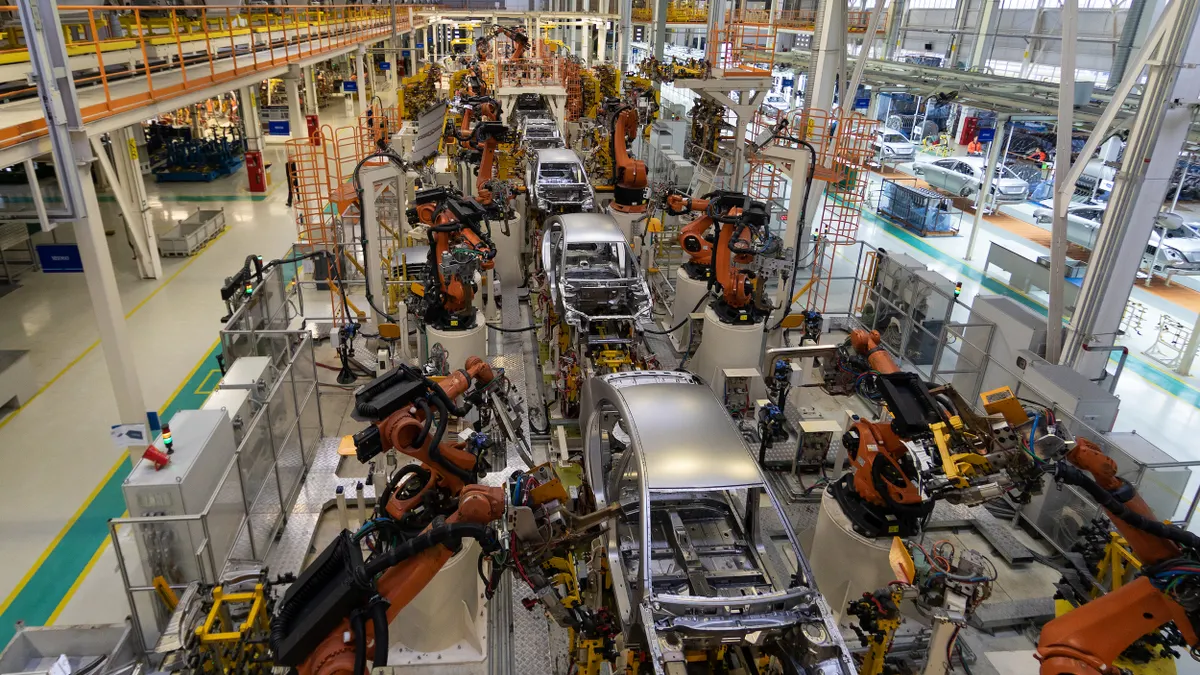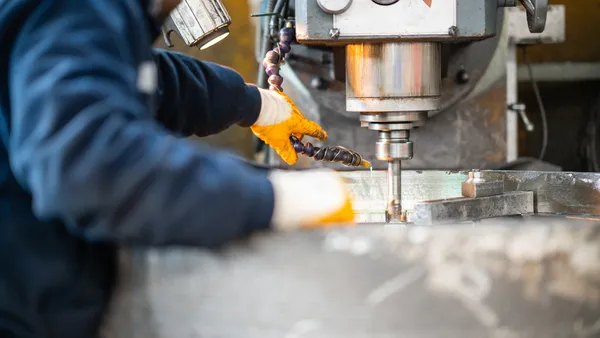When disruption is constant — think technological advancements, economic volatility, supply chain uncertainty, and shifting regulations — manufacturers that reimagine their procurement approach have an advantage. Procurement can not only help control costs but also play a strategic role in building resilience and innovation.
This transformation, however, depends on your procurement team's ability to pivot their skills to keep pace. Managing transactions and cost-cutting initiatives are no longer the ways procurement delivers the most impact in manufacturing. These valuable team members can also drive high-performance operations, help prevent production slowdowns, and empower their teams to meet customer demand. To do this, however, they need well-rounded expertise that blends new skills with existing capabilities.
How and why skill requirements are changing for procurement leaders
The foundational skills that procurement team members have honed over decades still play a part in achieving cost optimization and improving supply chain reliability, including the ability to:
- Plan strategically
- Manage costs
- Develop solid supplier relationships
- Ensure contract compliance
But, to prepare for new ways of running a manufacturing operation, the need to add new skills to the mix is sharply rising for procurement leaders. According to Procurement Skills for the Future, a recent Economist Impact report sponsored by Amazon Business:
- Technological skills are set to increase in importance by 16% in the next five years, as more manufacturers embrace digital transformation, automation, and advanced analytics.
- Sustainability skills are set to increase in importance by 10% in the next five years, as manufacturers emphasize responsible sourcing, reduce environmental impact, and strengthen compliance.
Because the manufacturing landscape is changing fast, and the maturity of these skills is lagging since they aren’t traditional to the role, many manufacturers see a gap between the capabilities of current procurement teams and the skills required in the future.
What modern procurement now demands when it comes to job performance
Successful procurement professionals must be ready to combine a strong base of foundational knowledge with a specific set of specialized skills.
Technology skills
Procurement leaders need to sharpen their technical proficiency skills to help manufacturers make the most of their AI, automation, and analytics investments. According to the Economist Impact report, 40% of these leaders are already investing in AI and automation to strengthen their work — and that number will go up.
As technology becomes more advanced and integrated into procurement, this could create new areas of responsibility like:
- Mastering e-procurement tools
- Using analytics to identify trends and savings opportunities
- Setting up automation to accelerate processes like approval and setting up recurring orders
Soft skills
With these digital advancements, the report also predicts that procurement leaders will require stronger soft skills to amplify human impact, build trust, drive alignment, and encourage work toward shared goals. This could mean refining strengths like:
- Building influence
- Enhancing collaboration
- Leading cross-functional teamwork
Sustainability skills
Finally, procurement leaders will be expected to develop sustainability skills to drive responsible purchasing and supplier relationships. This means they’ll need to:
- Assess supplier performance based on specific metrics
- Conduct and evaluate lifecycle analyses
- Find ways to ensure supply chain transparency to support responsible sourcing
“Sustainability has moved from being ‘nice to have’ to ‘must have,’ ” says Thomas Johnsen, professor of procurement and supply chain management at Audencia Business School. “Itʼs now essential for companies to ensure that their procurement processes are not only cost-effective but also environmentally and socially responsible.”
Tips to improve the skills of your procurement team
There are practical steps you can take to help your procurement team get ready for what’s next in manufacturing.
Evaluate team skills regularly to identify and address shortcomings. This could mean looking at capabilities tied to core skills like supply chain management, direct material sourcing, and supplier performance management, as well as emerging digital, sustainability, and soft skills. When a skills gap is identified, action can be taken to close it.
Align training with future needs. This could involve creating education programs around sustainability in manufacturing, pursuing certifications, or engaging in hands-on courses to learn how to work with AI and data analytics to balance cost, quality, and lead times. Regularly revisiting training priorities helps your team evolve with the industry.
Determine which capabilities are worth improving in-house. While some areas of expertise are vital to daily operations, others may be better suited for external expertise due to their complexity or specialized nature. For example, you might consider developing sustainability skills internally while you bring in a third party to help oversee and manage analytics tools and e-procurement platforms. Turning to external partners like Amazon Business and its tools and resources can help manufacturers accelerate progress toward smarter procurement.
Build future-ready procurement skills
Future-ready procurement will be a major differentiator for manufacturers that want to lead in uncertain times.
To build and sustain a competitive edge, it’s essential to ensure that your procurement team is capable of expanding its role and capabilities beyond traditional purchasing to more strategic priorities.
Harnessing resources like Amazon Business can make this transformation even more effective. By leveraging intelligent procurement platforms, purchasing leaders can help manufacturing operations accelerate progress, increase visibility, and boost efficiency.
Learn more at Amazon Business.










